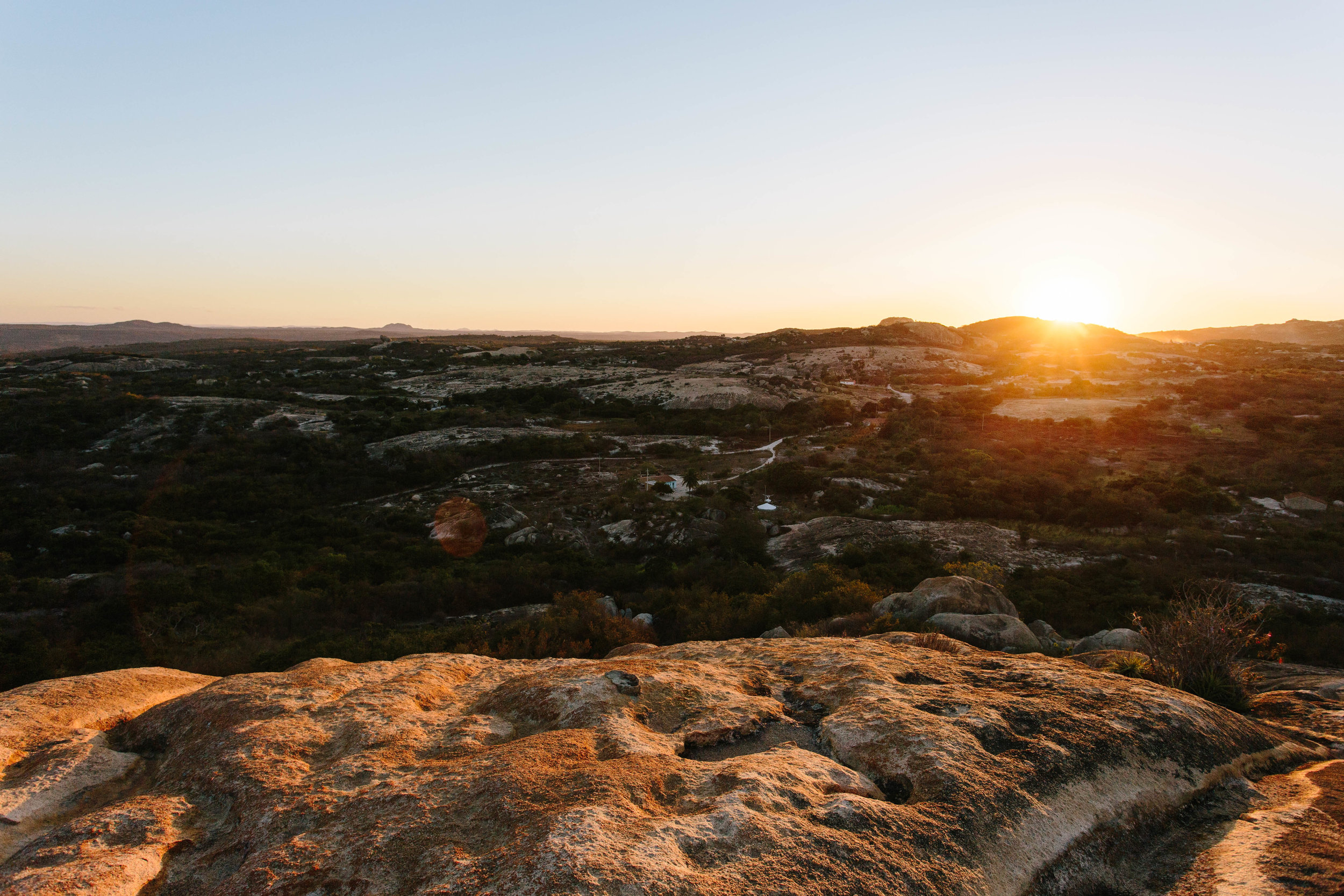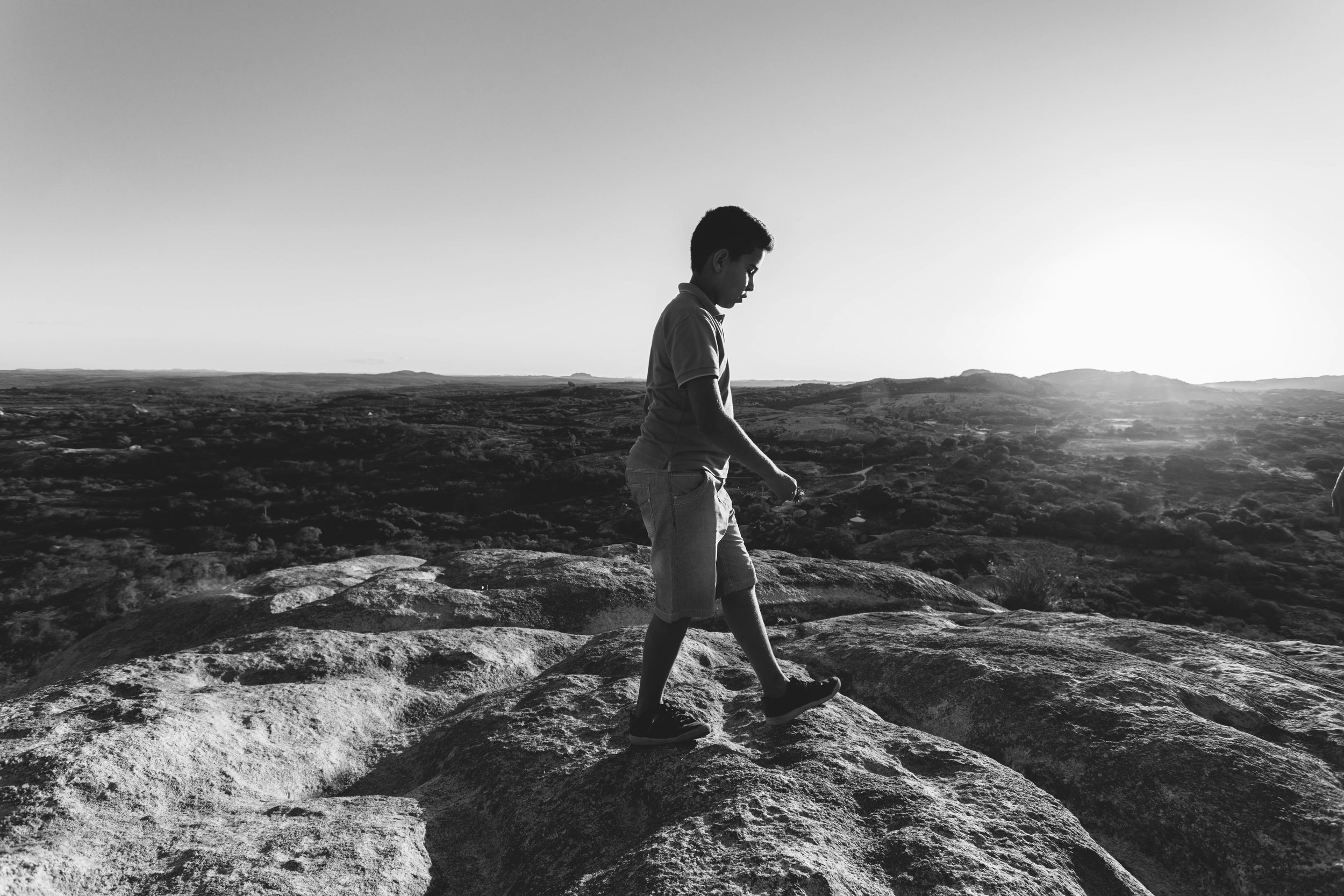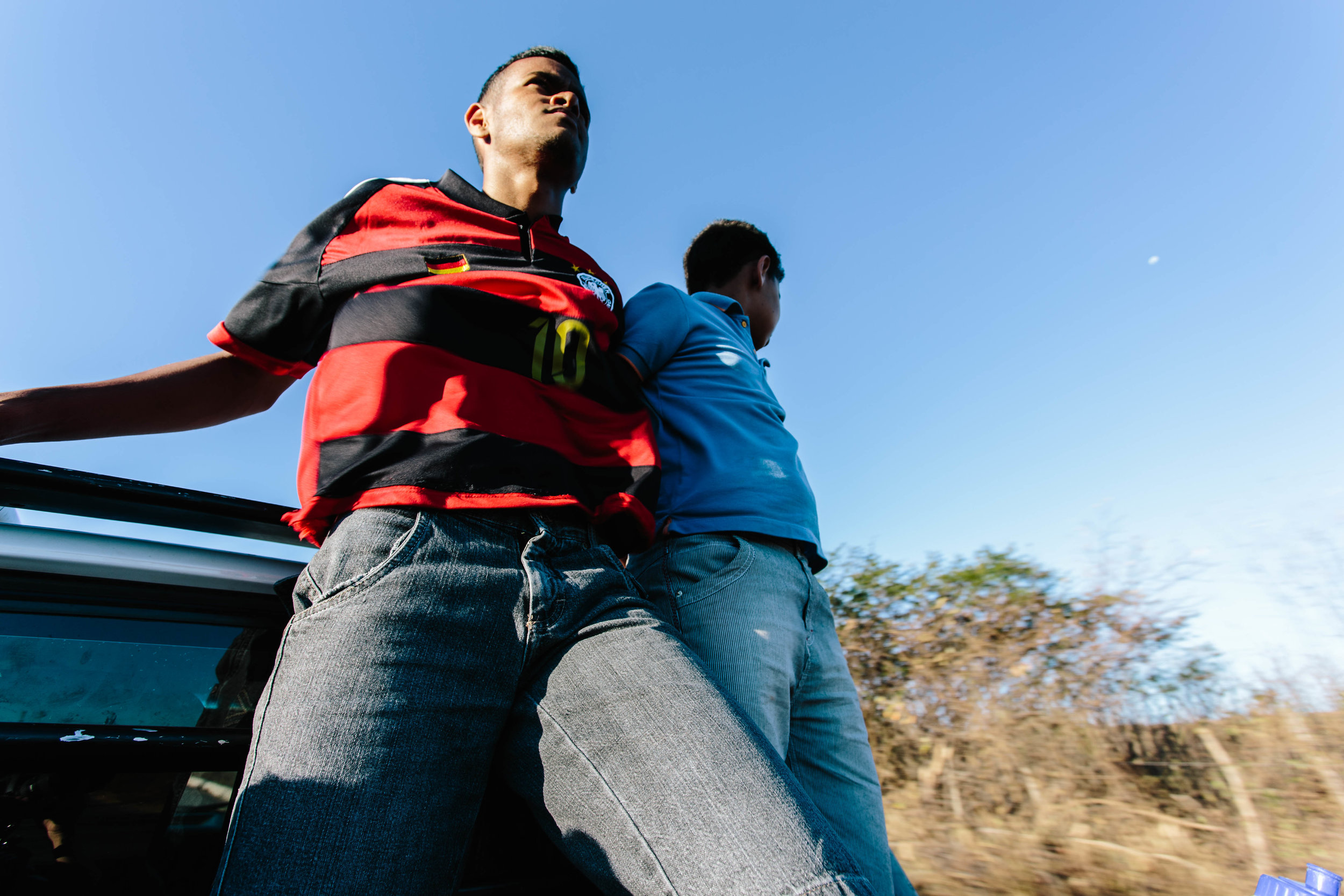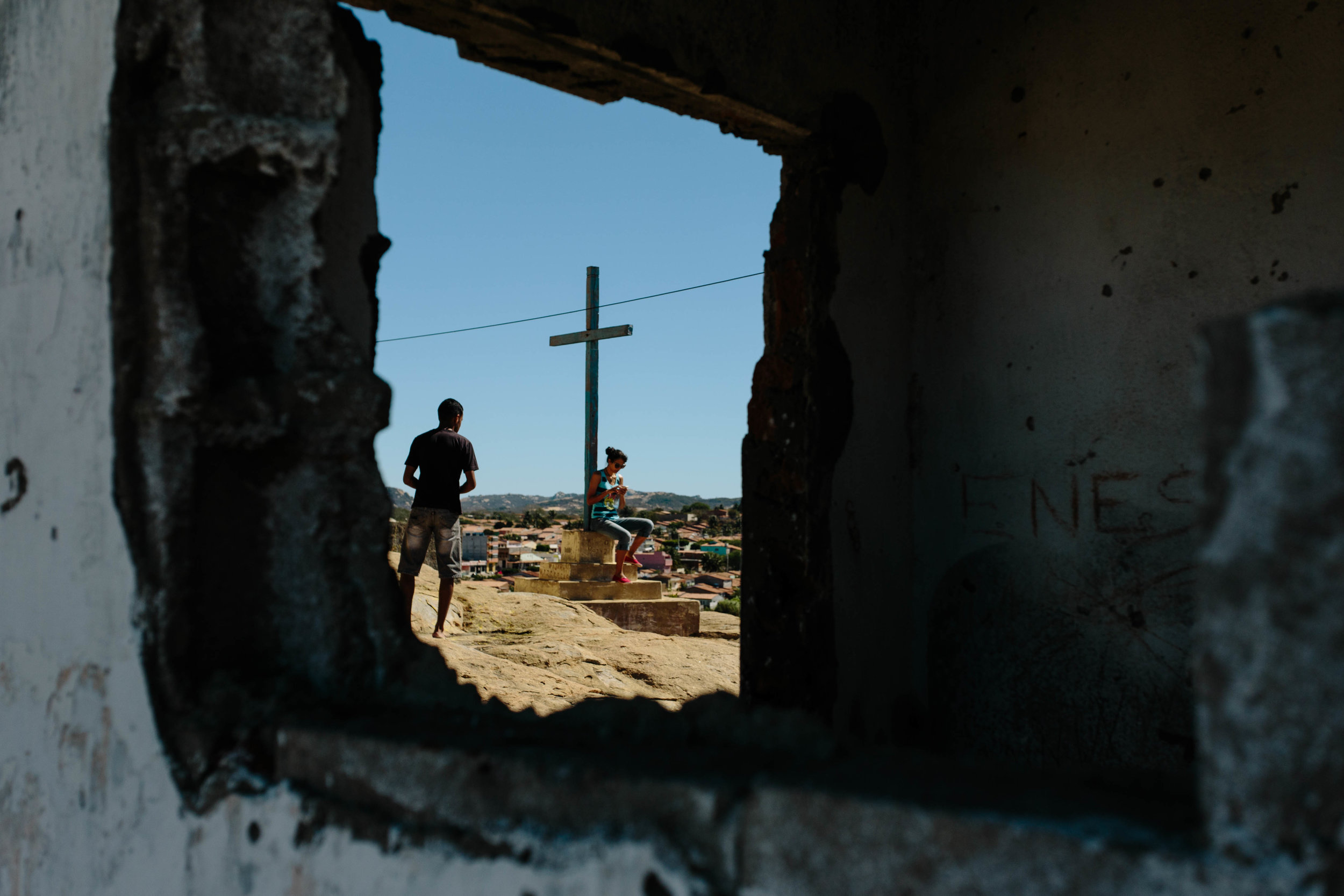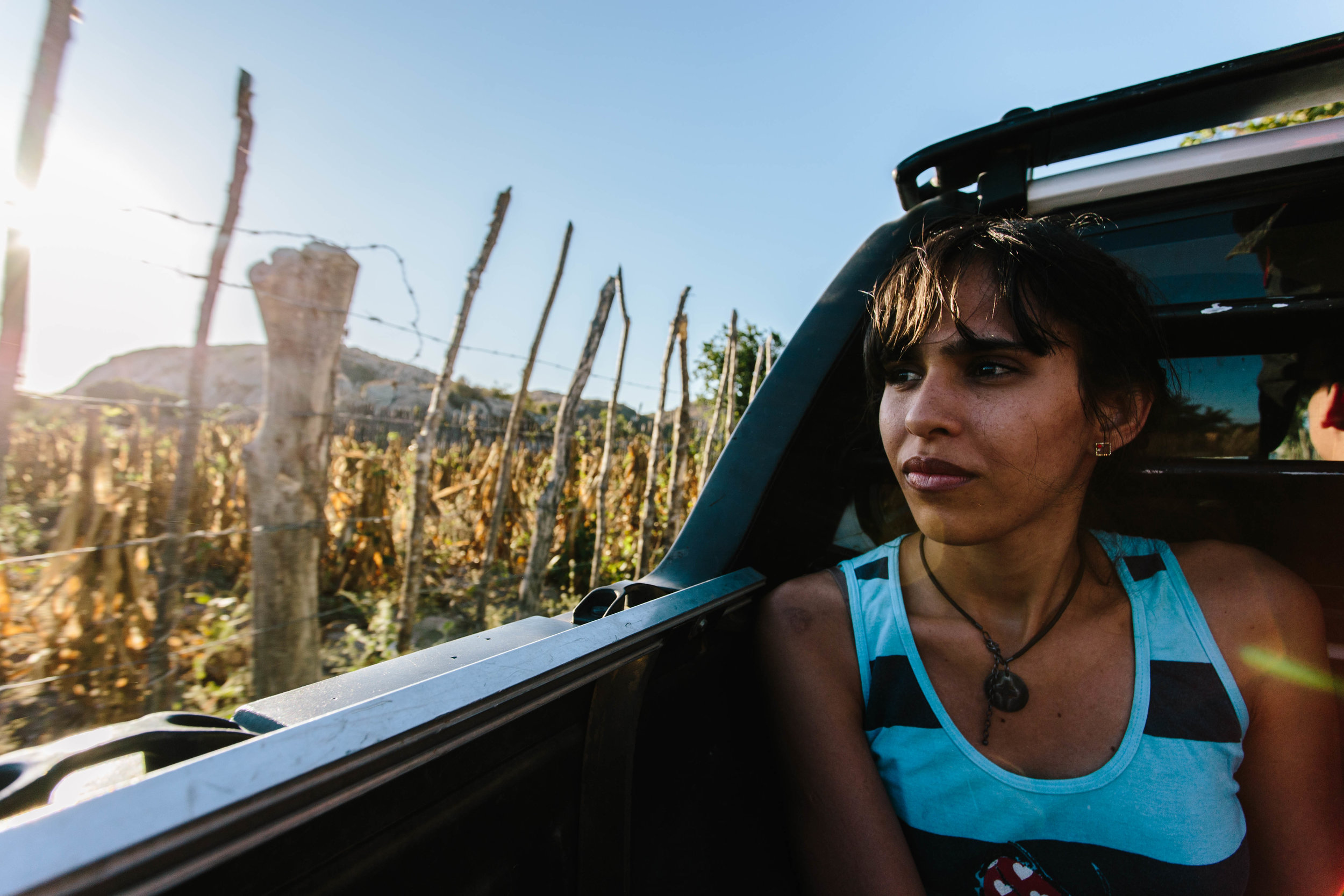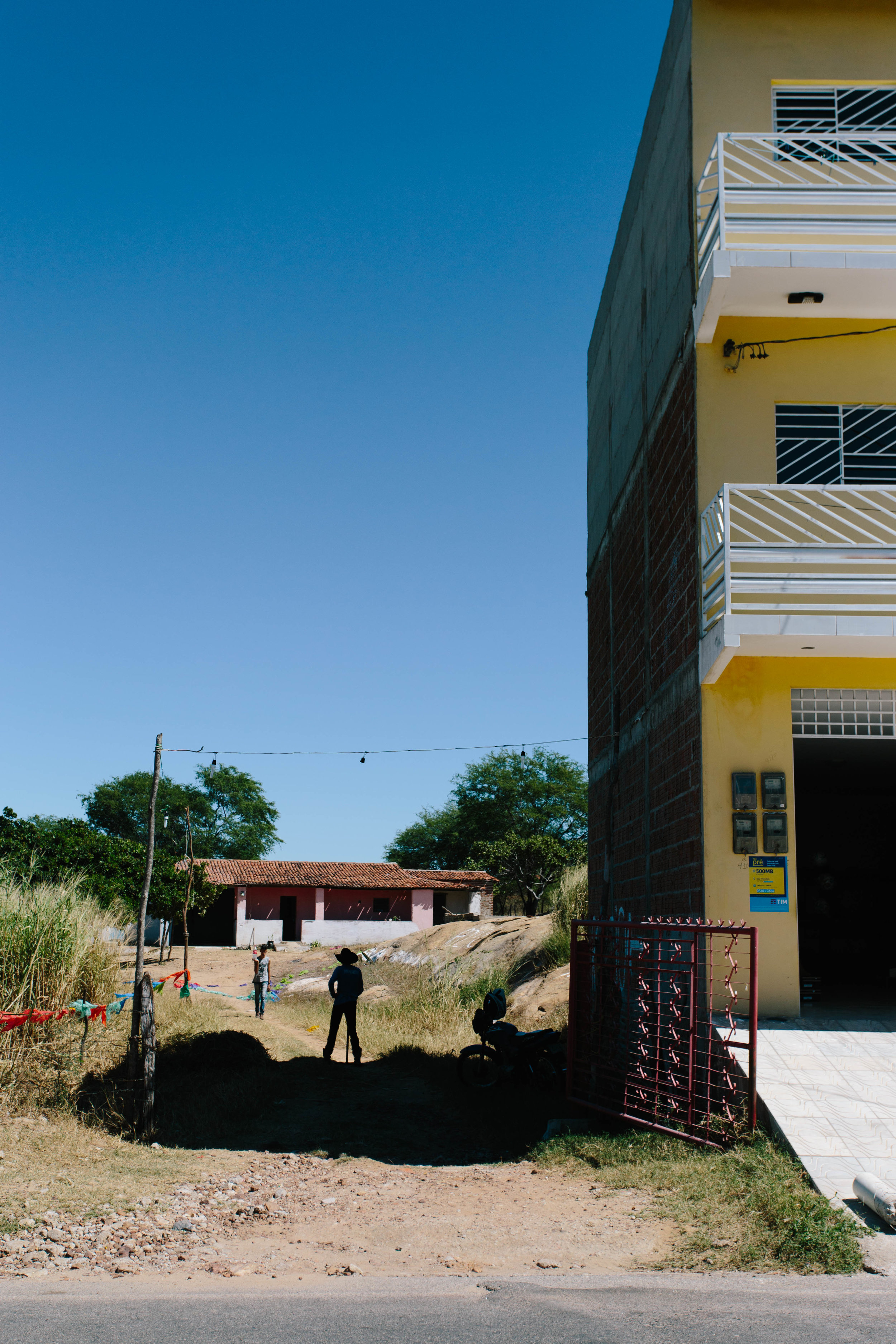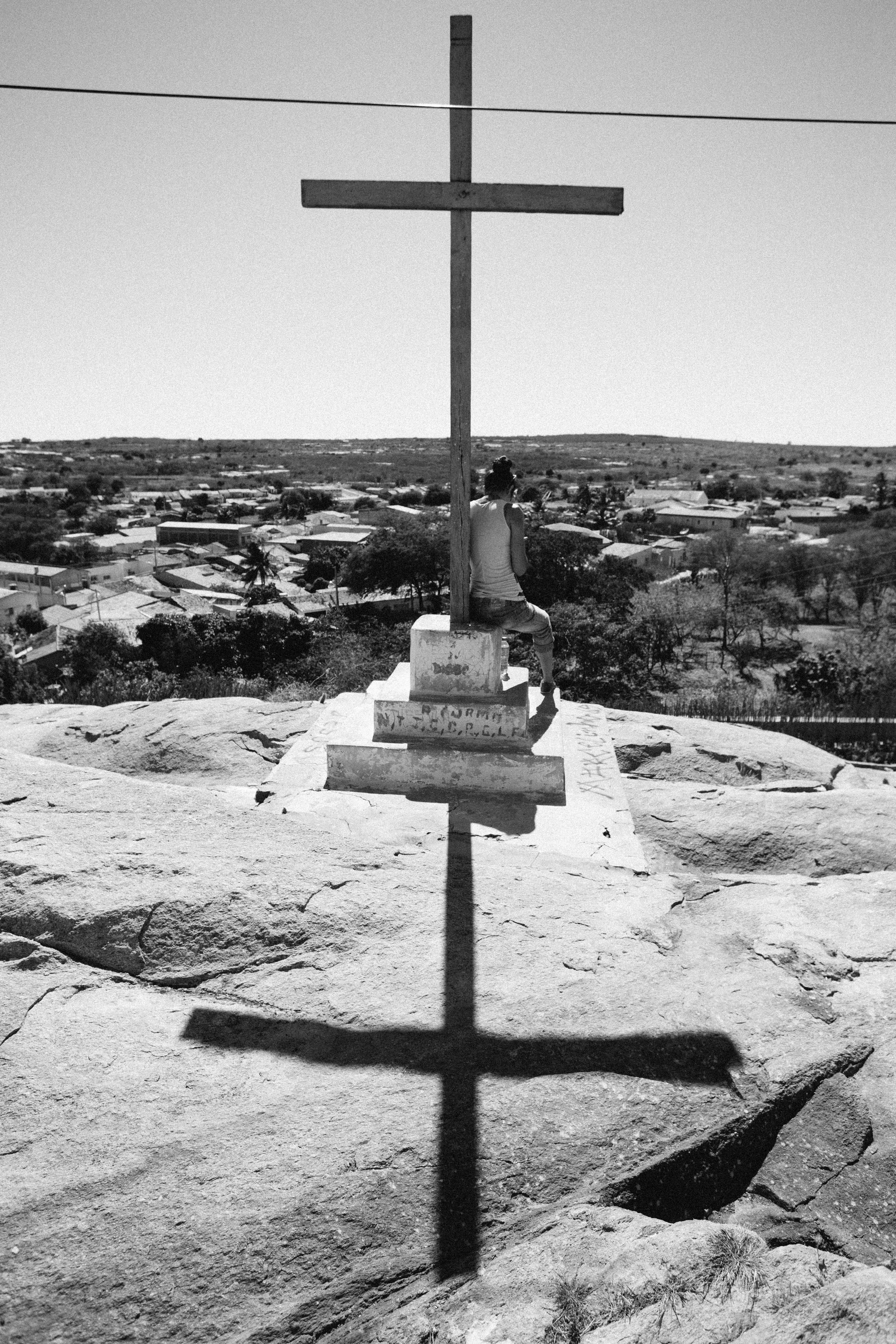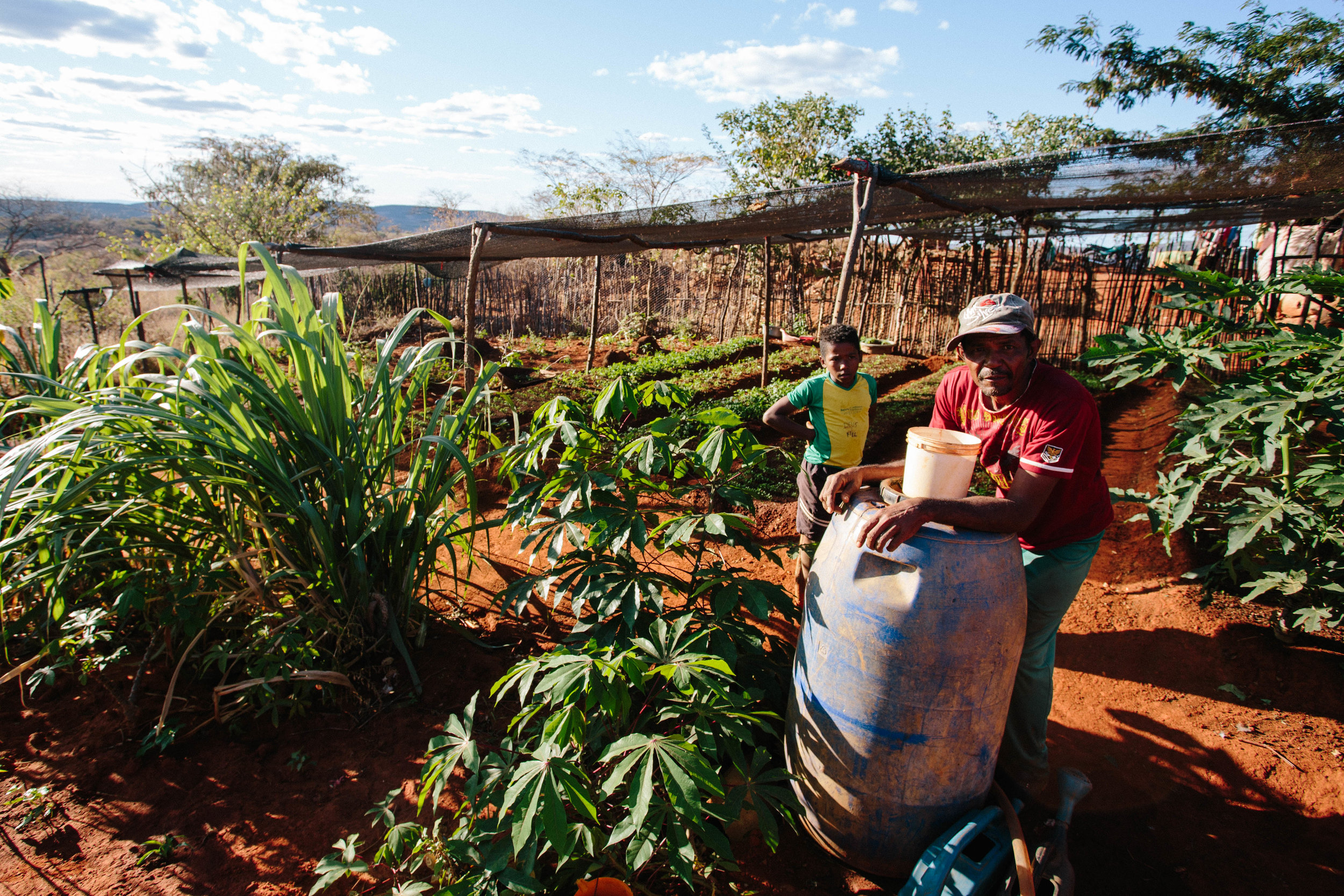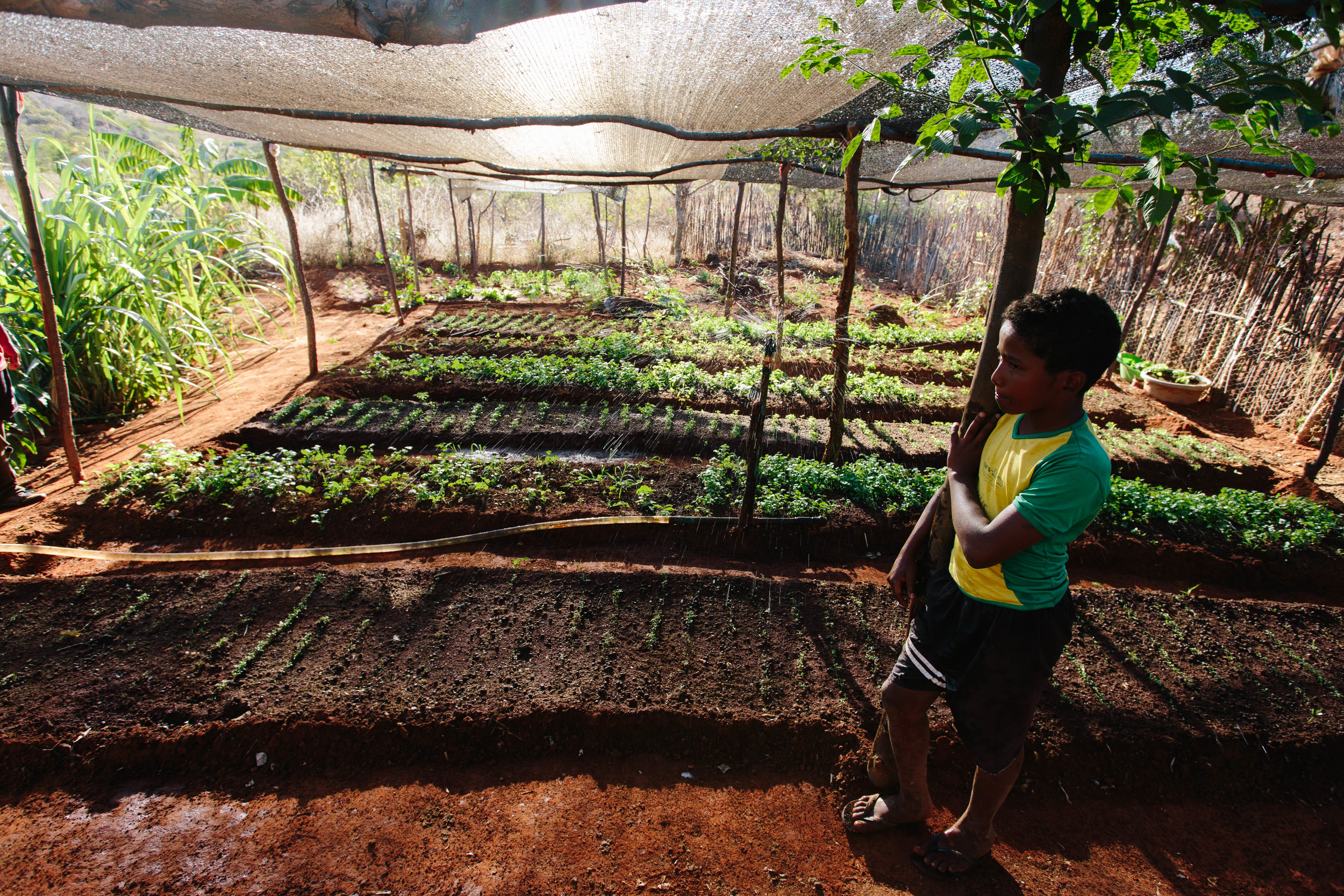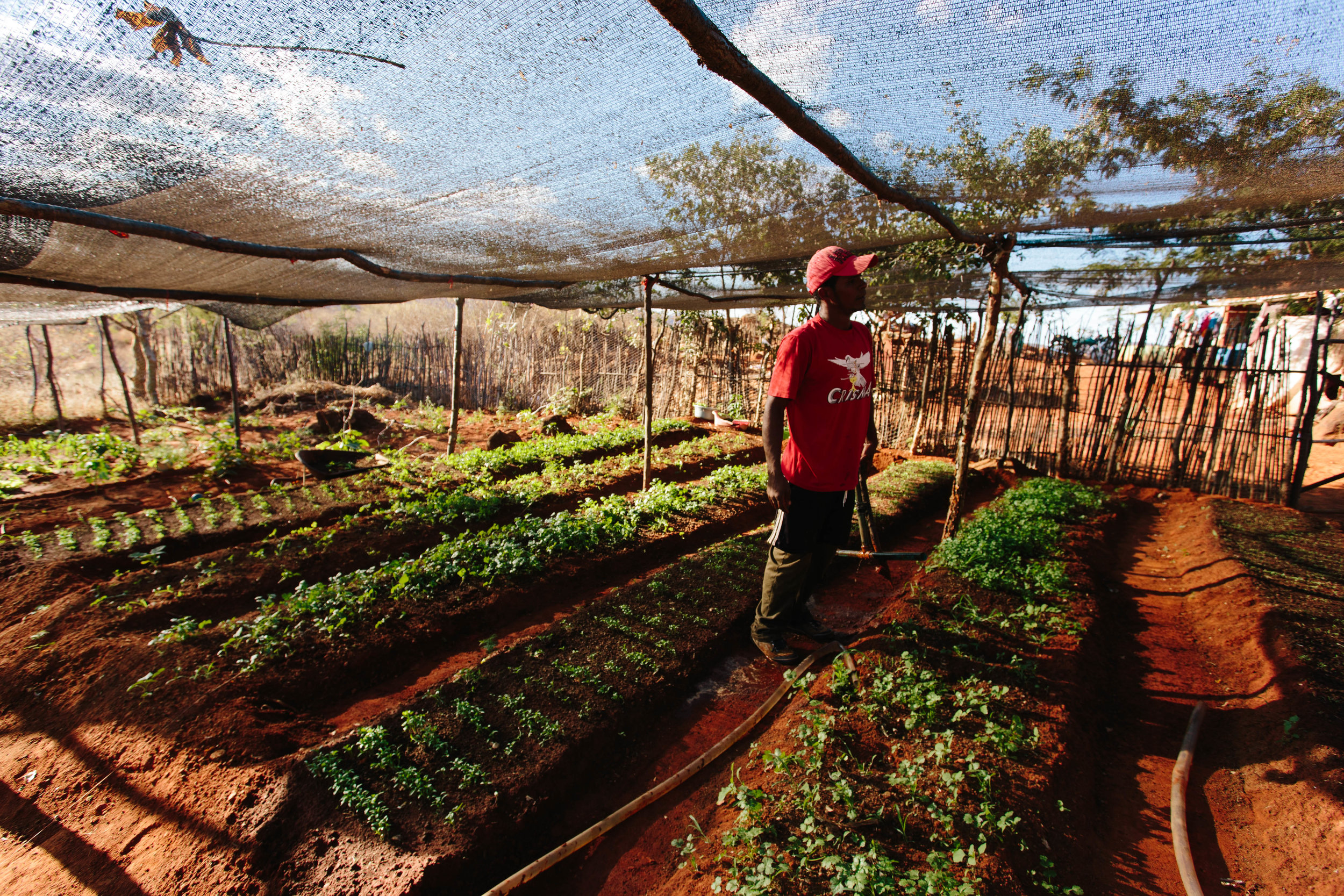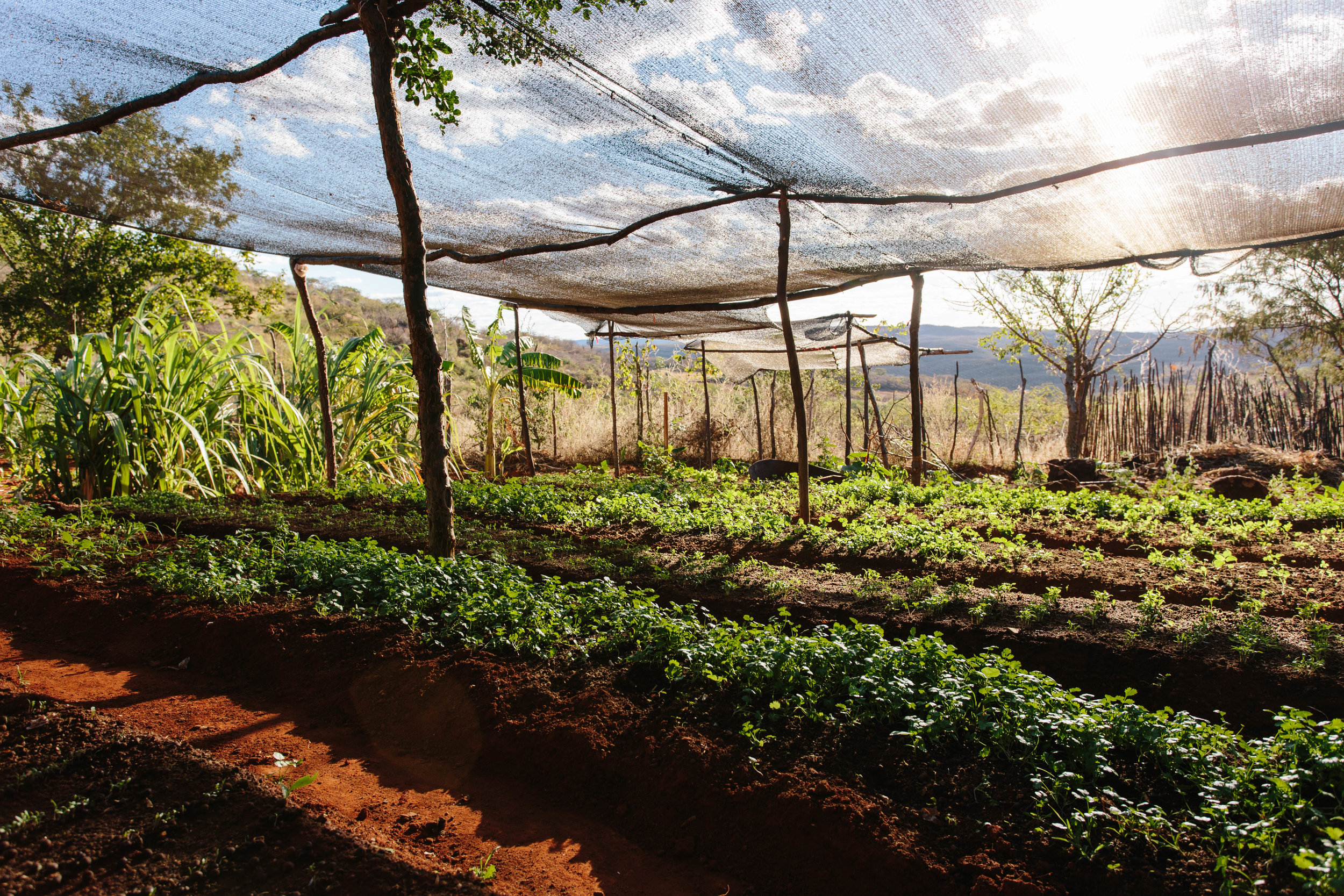Humbly Walking, Working Humbly: Brazil. (Part 2)
By now, we've firmly established that the North East is different. It isn't Rio, nor the Amazon. Read PART 1 here before continuing. // Surprisingly for some, Copacabana Beach doesn't have 200 million people living on it's shores. Brazil is so vast, more vast than I ever realised or imagined; and yet we know so little about anywhere other than a handful of places. Somewhere you probably don't know a lot about is Imaculada, PB.
The view from Pico de Jabre, the highest point in Paraiba, with Dan enjoying the view.
IMACULADA, PARAÍBA
It's always the people who make a place and one man in particular blew me away with his passion and drive to make his community a better place to live: Pastor Lindon Carlos.
Pastor Carlos has been working as an activist for his community for decades. He's passionate about seeing better relations between members of his community and seeing justice done in the lives of his friends and neighbours. But a little more on him later.
This is a wild country. No limits, no constraints and seemingly no end to the amount of food one can eat in a day. A really special place with a soul to envy and a passion for life you can't easily forget. It has everything it needs: vast resources, water supplies, food and forestry, an abundance of wildlife and ecosystems, sunshine and beauty. Colour, life and fantastic food are all around. But there is one rather large and seemingly unending issue in Brazil which is holding people back from propelling forward: Greed.
Greed in the political corridors and economic backchannels of Rio and Brasilia has meant that the average Brazilian has seen nothing of the massive economic growth over the last quarter of a century.
While 'FIFA quality' stadiums were propped up around the country for the 2014 World Cup, the schools and hospitals certainly aren't 'FIFA quality.' Who on earth could ever think that hosting a $15 billion World Cup and an Olympics costing around the same was a sane plan when millions of ordinary Brazilians suffer from abject poverty every day? The answer is actually uncomfortably simple and what has happened is unfortunately all too predictable. Those who were set to profit from it, the same greedy politicians and economic giants made sure that no-one else benefited because is in their short-term self-interest to do so. While the finances and resources to provide every Brazilian with a good life exist, greed has meant that this hasn't happened.
While Brazil's international respect and standing may increase as a result, the respect the for politicians and government within Brazil has fallen to a new low as distrust and anger boil up inside homes all over the nation.
However, something different is happening in Imaculada.
"OUR DAILY BREAD"
There is anger, yes. Of course people are frustrated with the spirals of poverty holding back themselves and their neighbours. But amidst this deep discontentment, the church is turning that anger into positive change, using what they have to serve those with less. It was inspiring to see how small community-based projects were having such positive change in a sustainable fashion. One such project was called "Our Daily Bread"
Pastor Lindon Carlos had spent a number of months as a volunteer Chief Executive of the 17 schools in the vicinity of his town. He was passionate about seeing more children fulfil their potential through education. However, over months of visiting schools he began to realise how many children had been coming to school without breakfast. Troubled and moved by this revelation he brought an idea to his small congregation. With little or no idea about what might happen, he announced this worrying news to his church family. They were as moved as he was and they began to take action for the benefit of their friends, neighbours, colleagues and for the children of their town.
90 people decided to keep over 1 bread roll everyday to give to those who had less. By the third month of the project, 32 families now had breakfast. 37 families have now been provided with breakfast every day for the last 7 years. 182 people, most of who are kids, now have bread due this project and their community supporting them. Over 700,000 breads have now been given thanks to a small groups of people keeping 1 piece of bread spare.
This community showed how with a passion and heart for seeing the Kingdom come in their town, small acts of unconditional love by a few can lead to changed lives for an entire city.
The scheme is incredibly cheap to run and the way in which the community has come together as a result was incredible to witness.
But the most amazing thing about this whole project was this. A family with around 180 reias per month (this is little more than £45 a month) between 8 people were put on project. They received the much needed bread for a few months. The mother then got a better job and decided that she now wanted to be part seeing others experience the same help that she had received. She now had 900 reias per month (this is still only around £230 per month for 8 PEOPLE). The church knew she was still needed support and kept her in the project. Amazing. And their are countless other stories of how people once on the project now help to fund it and deliver the breads to others who need support. Their is no sense of shame or exclusion from the community if you need support. But rather people are loves, rallied round and brought into the fold of love that they need while experiencing difficult financial times.
It was truly a blessing to see how the Church has been such a force for good in this town.
EQUAL AGENCY PARTNERSHIP
What I loved most about the projects that I had the opportunity to visit was the relationship between Tearfund and the local, on the ground partner, ACEV. Tearfund are a global charity with projects in countless areas and nations. With this grand scale, there is simply no way to provide sustainable and long-term help by themselves. And they recognise this. Instead, Tearfund partner in an equal agency manner with churches on the ground who know the needs of their local community better than Tearfund do. They listen humbly to those partners and are open-eyed about the context, learning he rhythms of local communities through committed and passionate leaders and churches in those areas. Tearfund are there to enable and guide the vision of their partners through financial help, prayer and resourcing .
Water is key to life. And in the north-east of Brazil, the impact of climate change has been impacting on the daily lives of the most vulnerable in tangible ways. Tearfund and ACEV have been working together to develop wells and water piping to ensure that communities, especially in rural areas, have access to water. As Kent Annan notes, 'in living out our faith it is important to be partners who listen and do what we say.' I have been privileged to witness this principle in action.
Below are some photographs of the water tanks that are located in numerous areas across this region. The beauty of these water tanks lie in their ability to enable people to create their own future. Davi, who has received months of agriculture training from Tearfund, has created a plantation in his garden, growing over 15 different fruits and vegetables. These are then sold to locals at a subsided price which saves them from driving in pollutant-creating motorbikes miles into the nearest towns to buy food. The profits are also responsibly shared with the community with many people working on the plantation to enable it to grow more.
Below are some more of the other water tanks enabling similar growth of vegetables including lettuces at other farms across the region:
My desire with these photographs and these posts was not to feature my own efforts in Brazil but instead to celebrate LOCAL people who are faithfully working for change in their own neighbourhoods over the long haul. I wanted to go simply to learn and communicate rather than to portray myself as part of the solution. My whole ambition in going to Brazil was to learn and be able to communicate from experience and witness about the realities of climate change and the difficulties and triumphs of community in Brazil. I hope this was conveyed and would love to chat further on mission, climate change, photography, faith or any other related topic.



